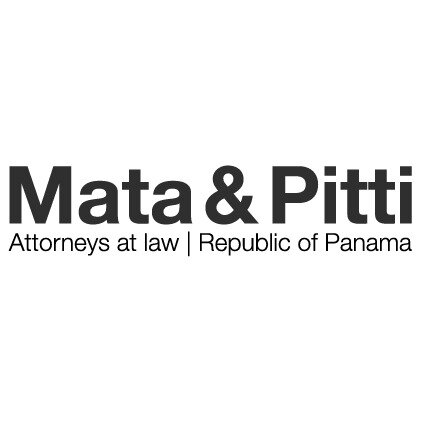Best Project Finance Lawyers in Panama
Share your needs with us, get contacted by law firms.
Free. Takes 2 min.
Or refine your search by selecting a city:
List of the best lawyers in Panama
About Project Finance Law in Panama
Project finance in Panama is an essential legal and financial framework for developing large-scale infrastructure and industrial projects. It typically involves raising funds on the basis of a project's future cash flows rather than the sponsor's balance sheets. This legal practice is prevalent in sectors such as energy, transportation, telecommunications, ports, and water treatment. Panama's strategic location, robust legal system, and stable economic environment have made it a hub for significant regional and global project finance transactions. The legal structure usually involves careful risk allocation, tailored contractual arrangements, and complex security packages.
Why You May Need a Lawyer
Project finance transactions involve numerous parties, detailed contracts, and significant financial commitments. You may need a lawyer in the following situations:
- Structuring complex financial deals for infrastructure or industrial projects
- Conducting due diligence for new partners, contractors, or investors
- Negotiating and drafting project contracts such as concession agreements, EPC (Engineering, Procurement and Construction) contracts, or O&M (Operation and Maintenance) agreements
- Securing land use rights, permits, and regulatory approvals
- Managing compliance with Panamanian regulatory frameworks and international standards
- Advising on tax implications and investment incentives in Panama
- Addressing legal challenges or disputes arising from project execution or financing arrangements
- Protecting your interests when dealing with government entities or international lenders
Local Laws Overview
There are several key aspects of Panamanian law that are especially relevant for project finance:
- Concession and License Laws: Many infrastructure projects require government concessions or licenses, especially in areas like ports, energy, and transportation. These legal instruments are closely governed by Panamanian administrative law.
- Security Interests: Panama permits the creation of various security interests such as mortgages, pledges, and trusts to secure lenders' rights over project assets and cash flows.
- Special Purpose Vehicles (SPVs): Project finance deals commonly use Panamanian corporations or trusts as SPVs to limit liability and organize the structure of the project.
- Public-Private Partnerships (PPP): Law 93 of 2019 regulates PPP schemes in Panama, fostering collaboration between public authorities and private investors.
- Environmental and Construction Permits: Projects must comply with environmental regulations and obtain the necessary construction and operational permits as required by Panamanian law.
- Investment Incentives: Panama offers tax and investment incentives for projects in certain sectors, especially those outside Panama City and projects that generate substantial employment or technological advancement.
Frequently Asked Questions
What is project finance?
Project finance is a method of funding in which the lenders look primarily to the revenues generated by a single project to cover the loan, rather than relying on the assets or creditworthiness of the project sponsors.
Why is Panama attractive for project finance?
Panama is attractive due to its stable economy, strategic geographic location, business-friendly legal system, and well-developed financial services sector.
What sectors are most active in project finance in Panama?
The most active sectors include energy (especially renewable energy), transportation infrastructure (roads, ports, and airports), telecommunications, and water or sanitation projects.
Do I need a local entity to participate in a project finance deal in Panama?
Generally, the use of a Panamanian special purpose vehicle (SPV) is advisable to facilitate local transactions and limit liability.
What legal documents are needed in a typical project finance transaction?
Key documents include loan agreements, security agreements, concession or license agreements, shareholder agreements, and various types of construction and operational contracts.
How are lenders protected in Panamanian project finance deals?
Lenders rely on security interests over project assets, assignment of project revenues, and step-in rights under project contracts. These protections are enforceable under Panamanian law.
Are there restrictions on foreign investors in Panamanian project finance?
Panama generally allows full foreign ownership in most sectors. However, certain strategic or regulated sectors may have specific limitations or additional requirements.
What are public-private partnerships (PPP) in Panama?
PPP arrangements allow the Panamanian government and private entities to collaborate on the financing, development, and operation of public infrastructure projects, regulated by Law 93 of 2019.
What are the common risks in a project finance transaction in Panama?
Common risks include changes in regulatory policy, environmental clearance delays, construction risks, market demand fluctuations, and foreign exchange risks.
How can I resolve disputes arising from a project finance agreement?
Disputes can be resolved through Panamanian courts or through arbitration, which is commonly included as the preferred dispute resolution mechanism in project finance contracts.
Additional Resources
For more information and assistance related to project finance in Panama, the following resources may be helpful:
- Panama National Public Registry for company and SPV formation
- Ministry of Economy and Finance for investment and concession guidelines
- Autoridad Nacional de los Servicios Públicos (ASEP) for regulated industries
- Autoridad Nacional del Ambiente (ANAM) for environmental regulations and permitting
- National Agency for Public-Private Partnerships for information on PPP projects
- Panama Chamber of Commerce, Industries and Agriculture (CCIAP) for business resources
- Local law firms specializing in banking, finance, and infrastructure law
Next Steps
If you are considering initiating or participating in a project finance transaction in Panama, consider the following steps:
- Identify your project’s scope, financial requirements, and key stakeholders
- Seek a preliminary legal assessment of regulatory, environmental, and tax obligations
- Engage a reputable Panamanian law firm with experience in project finance
- Coordinate with relevant government agencies to secure necessary permits and approvals
- Work with legal and financial advisors to structure the project’s contracts and financial arrangements
- Conduct thorough due diligence on all parties involved
- Establish clear dispute resolution mechanisms in project contracts
- Stay informed of legislative and regulatory changes that may impact your project
Professional legal advice is vital to successfully navigating the complexities and maximizing the benefits of project finance in Panama. Start by consulting a local lawyer to ensure your interests are well protected.
Lawzana helps you find the best lawyers and law firms in Panama through a curated and pre-screened list of qualified legal professionals. Our platform offers rankings and detailed profiles of attorneys and law firms, allowing you to compare based on practice areas, including Project Finance, experience, and client feedback.
Each profile includes a description of the firm's areas of practice, client reviews, team members and partners, year of establishment, spoken languages, office locations, contact information, social media presence, and any published articles or resources. Most firms on our platform speak English and are experienced in both local and international legal matters.
Get a quote from top-rated law firms in Panama — quickly, securely, and without unnecessary hassle.
Disclaimer:
The information provided on this page is for general informational purposes only and does not constitute legal advice. While we strive to ensure the accuracy and relevance of the content, legal information may change over time, and interpretations of the law can vary. You should always consult with a qualified legal professional for advice specific to your situation.
We disclaim all liability for actions taken or not taken based on the content of this page. If you believe any information is incorrect or outdated, please contact us, and we will review and update it where appropriate.
Browse project finance law firms by city in Panama
Refine your search by selecting a city.

















